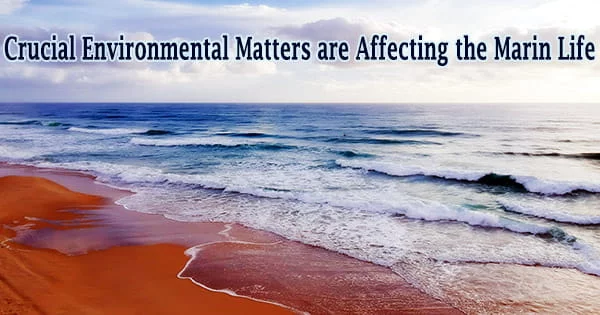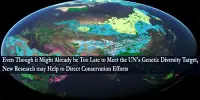Oceans are the world’s largest ecosystem, encompassing more than 70% of the planet’s surface and supporting almost 200,000 species as well as the over 3 billion humans who rely on them for survival.
The health of the world’s oceans is being jeopardized by human activities. Land-based activities are responsible for more than 80% of marine pollution. Entire marine ecosystems are fast altering, from coral bleaching to sea-level rise.
Yet, according to a panel of the world’s top ocean experts, ocean health is deteriorating, and people are solely to blame. The seas’ ability to support life, including human life, will be jeopardized unless something changes quickly.
An international panel of scientists found in a 2011 report to United Nations member states that the severity of negative consequences on the seas had been underestimated, and that ocean degradation is currently occurring at a rate far faster than projected.
Global warming is altering ocean chemistry and many oceanic processes, posing a hazard to many marine organisms that are unable to adapt to higher temperatures. In many regions of the world, overfishing is a severe issue. To safeguard the ocean’s biodiversity, conservationists recommend the creation of large marine reserves.
The combined effects of global warming and acidification, as well as pressures from other human activities such as overfishing and pollution, have resulted in a substantial reduction in ocean health.

The group also warned that current conditions are similar to those of every previous mass extinction event, indicating that marine life could be on the verge of a new mass extinction catastrophe, unprecedented in human history.
Carbon dioxide concentrations in the atmosphere, the majority of which is produced by humans, are higher than they have ever been in the past 800,000 years. The reasons for this may be debatable, but the end effect is undeniably true: global climate change. The oceans will continue to warm as a heat sink for rising temperatures.
Rising ocean temperatures, according to the yearly National Climate Assessment report, will affect not only the climate but also ocean circulation, chemistry, and ecosystems. Impacts on the world’s coral reefs are of particular concern.
Higher water temperatures cause corals to eject the symbiotic algae that provide them with nutrition and color, leaving stressed and disease-prone “bleached” corals. If present greenhouse gas emissions continue, only 5% of the world’s reefs would be unharmed by 2050, according to scientists.
The “Equally Evil Twin”
More than a quarter of the carbon dioxide humans emit into the atmosphere is absorbed by the oceans, helping to mitigate the effects of global warming. However, as mankind consumes more fossil fuels, the seas absorb more CO2, lowering oceanic pH and depleting carbonate ions required by reef and shell-building animals such as corals and shellfish.
Ocean acidification, according to Jane Lubchenco, former head of the National Oceanic and Atmospheric Administration, is the “equally terrible twin” of climate change.
Ocean pH has declined from 8.2 to 8.1 since the industrial revolution, a rate of acidification at least 10 times quicker than during the Paleocene-Eocene Thermal Maximum, a 56 million-year period of rapid global warming and significant marine extinctions.
Around 80% of marine pollution comes from land-based sources such as agricultural runoff, untreated sewage, and plastics around the world. Agricultural runoff has been blamed for the growth of ocean dead zones, which are areas of low oxygen levels where most marine life cannot survive.
Fertilizer excess nutrients have also been related to dangerous algal blooms, which contaminate seafood and kill fish. Pollutants have also been found in the arctic seas, including flame-retardant compounds.
The oceans absorb a large portion of the 220 million tons of plastic created each year, cluttering habitats and killing over a million sea birds and 100,000 marine mammals each year.
The oceans are the principal source of protein for over 2.6 billion people. Overfishing of marine resources has resulted from an increasing global population and unsustainable fishing practices.
NOAA is required by the Magnuson-Stevens Fisheries Management Act to end overfishing in the United States. Globally, however, increasing demand combined with fishing subsidies is contributing to the extinction of numerous species.
Pirate fishing, also known as illegal, unreported, and unregulated fishing, further degrades fisheries at home and abroad by destroying marine ecosystems and undermining international conservation and management agreements.
















